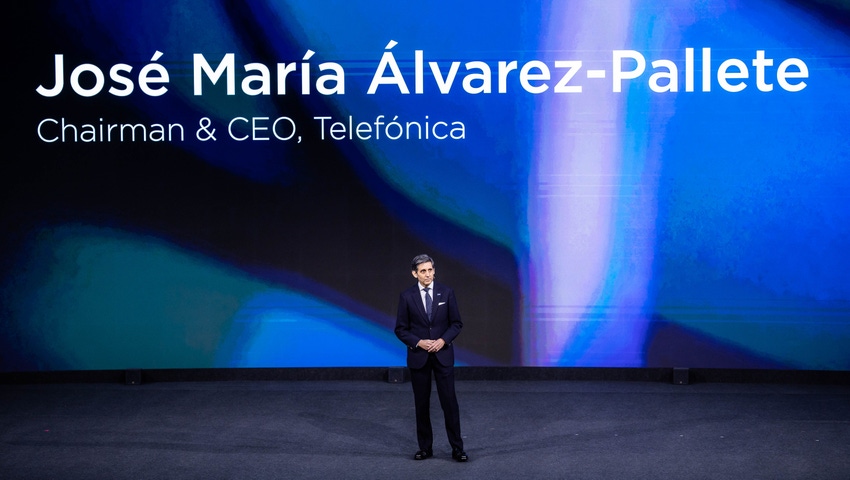Eurobites: European telecom is behind the curve, says Telefónica boss
Also in today's EMEA regional roundup: Ofcom probes Vonage over emergency-call failures; Nokia targets the metro edge; Wireless Broadband Alliance pilots OpenRoaming Wi-Fi.

Telefónica CEO José María Álvarez-Pallete has used his keynote speech at an event celebrating the operator's centenary to call for "new rules to ensure the responsible use of networks, data sovereignty and European competitiveness." Álvarez-Pallete's basic message was that Europe was falling behind the curve and needed to "regain its rightful position," and that the way to do this was to "move Europe forward in artificial intelligence, security and defense, with communications as the backbone." In what is now a familiar refrain from the representatives of European telcos, he concluded: "Europe needs a robust and sustainable telecommunications sector. We need the European institutions to enable it. We need a proper definition of the relevant markets and in-market scale. We need a new approach to regulation."
Ofcom, the UK communications regulator, has launched an investigation into Vonage following an incident that meant its business customers were unable to make emergency 999 calls between October 23 and November 3, 2023. Though Vonage did notify Ofcom of the incident, Ofcom's suspicion is that it failed to do so quickly enough and so did not comply with its regulatory obligations. Ofcom's rules require providers to "take all necessary measures" to ensure uninterrupted access to emergency organizations as part of any call services offered.
Nokia has launched a set of new optical transport offerings aimed at metro edge deployments. The refreshed lineup includes 100Gbit/s, 400Gbit/s and 800Gbit/s transceivers; new pluggable coherent transceivers; an expansion of its Photonic Service Engine range; and a new 400G multihaul transceiver.
The first of 86 4G masts has been switched on in Wales as part of UK government's Shared Rural Network (SRN) program. As a result of the upgrade, residents of and visitors to Powys County will be able to access a 4G signal from all four mobile network operators, namely EE, VMO2, Three and Vodafone. In Wales, total 4G coverage from all mobile network operators is forecast to be 80% following SRN rollout, increasing from 60% pre-SRN.
The Wireless Broadband Alliance (WBA) has completed an advanced public Wi-Fi OpenRoaming proof-of-concept trial in Shoreditch, London. Users with OpenRoaming natively on their phone, via an existing profile or their preferred app, can, says the WBA, access Wi-Fi automatically with no usernames or passwords, safe in the knowledge that the connection is secure, and their privacy protected. The trial was undertaken in partnership with CIN, a provider of streetside telecoms infrastructure assets in major cities; Colt Technology Services, a digital infrastructure company; and GlobalReach Technology, a provider of wireless ISP services.
Telenor, Hafslund and HitecVision are to invest 2.4 billion Norwegian kroner (US$224 million) in an Oslo data center joint venture, called Skygard. According to its backers, the project was prompted by the uncertain current geopolitical situation and the AI revolution which, they say, increases the need for secure data storage on Norwegian soil in facilities owned by Norwegians.
Vodacom is planning to cut around 80 jobs at its South African unit, with redundancies coming at all levels of the company, according to a Bloomberg report. The company employs around 5,400 people in South Africa, says Bloomberg.
Read more about:
EuropeAbout the Author(s)
You May Also Like




_International_Software_Products.jpeg?width=300&auto=webp&quality=80&disable=upscale)







